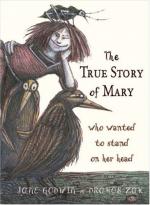|
This section contains 6,524 words (approx. 22 pages at 300 words per page) |

|
SOURCE: "Ideology and Self: A Theoretical Discussion of the 'Self' in Mary Wollestonecraft's Fiction," English Studies in Canada, Vol. XII, No. 2, June 1986, pp. 163-77.
In the following essay, Harasym examines the autobiographical novel The Wrongs of Woman; or, Maria, contending that Wollstonecraft's identification of herself with her protagonist complicated her portrayal of a utopian feminist ideology.
She whose sense of her own existence was so intense, who had cried out even in her misery, "I cannot bear to think of being no more—of losing myself—nay, it appears to me impossible that I should cease to exist", died at the age of thirty-six.1
As Virginia Woolf's comment and quotation from Wollstonecraft's letter suggests, Mary Wollstonecraft's oeuvre from Mary, A Fiction and A Vindication of the Rights of Woman to Maria or The Wrongs of Woman may be read as a quest for a unified self and presence...
|
This section contains 6,524 words (approx. 22 pages at 300 words per page) |

|


